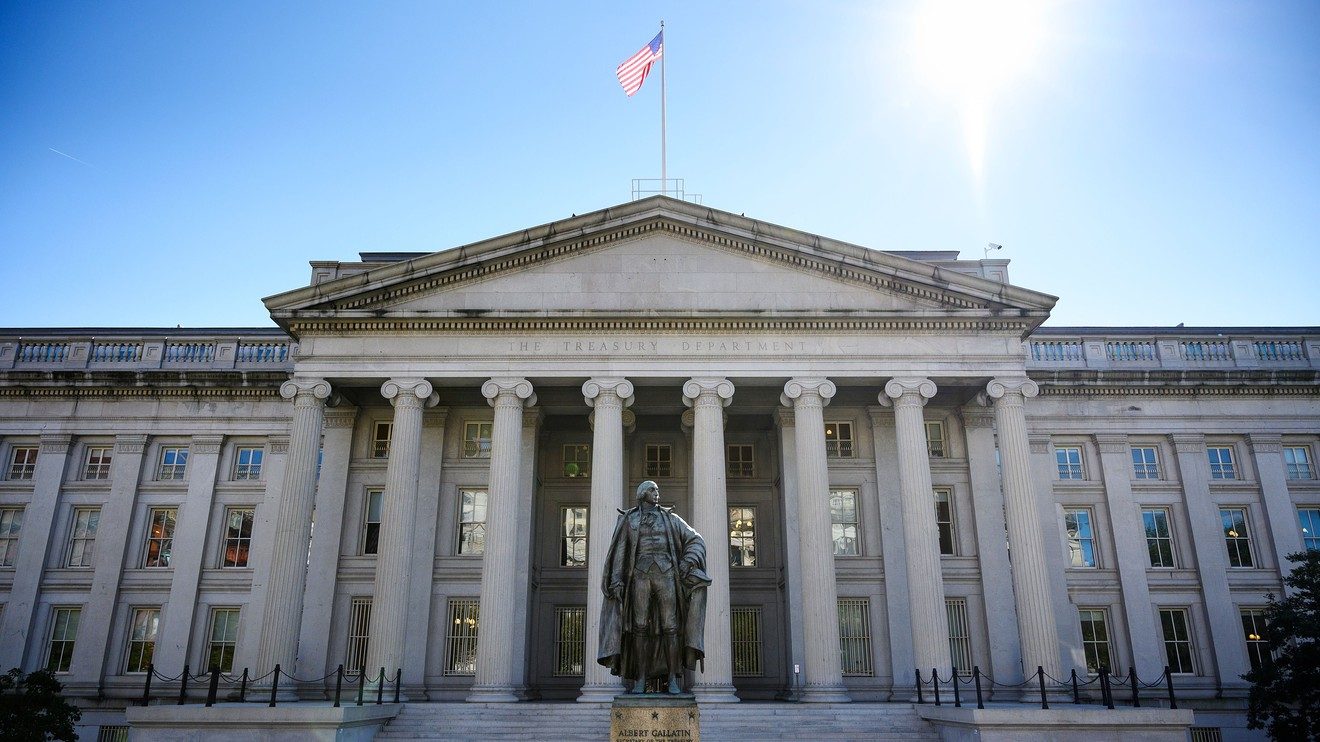Analysts say the latest sanctions are another indication that Washington is not negotiating in “good faith”.
The US Treasury Department imposed fresh sanctions on several individuals and entities in Iran on Tuesday over “gross violations of human rights” in the Islamic Republic as talks aimed at restoring the 2015 nuclear deal hang in the balance.
The US sanctioned the Special Units of Iran’s Law Enforcement Forces [LEF Special Units], Iran’s Counter-Terror Special Forces [NOPO], two prisons, and officials involved in the entities for human rights violations.
Those violations included using excessive force on protesters in Iran, including against those who took to the streets during the the 2009 “Green Movement” as well as the 2019 protests. It also included torturing detainees.
“Treasury will continue to defend against authoritarianism, promoting accountability for violent repression of people seeking to exercise their human rights and fundamental freedoms,” Andrea Gacki, director of the Treasury’s Office of Foreign Assets Control, said in a statement on Tuesday.
The move comes as Iran has continued to amplify demands to lift US sanctions during talks currently taking place to restore the Joint Comprehensive Plan of Action [JCPOA] in Vienna.
Even amid #ViennaTalks, US cannot stop imposing sanctions against Iran.
Washington fails to understand that 'maximum failure' & a diplomatic breakthrough are mutually exclusive.
Doubling down on sanctions won't create leverage—and is anything but seriousness & goodwill.
— Saeed Khatibzadeh | سعید خطیبزاده (@SKhatibzadeh) December 7, 2021
Iran’s Foreign Ministry spokesman Saeed Khatibzadeh said that “doubling down on sanctions won’t create leverage — and is anything but seriousness & goodwill”.
Speaking to Doha News, Dr. Mehran Kamrava, Professor of Government at Georgetown University in Qatar, said that the new sanctions are yet another indication that the US is not negotiating in “good faith”.
“From the very beginning, the Iranians have entered into the agreement negotiating in good faith. It was the Americans who pulled out of the 2015 agreement, the Iranians abided by the terms of the agreement for a year after the Americans pulled out,” said Dr. Kamrava.
Diplomats returned to nuclear negotiations Vienna on 29 November following months of delay. The talks are being attended by officials from the p4+1 – China, France, Russia, the UK plus Germany.
The talks adjourned following the sixth round in June as Iran’s elections took place, which saw the victory of Ebrahim Raisi.
An extension of Trump’s policies
The 2015 nuclear accord was implemented during the former Barack Obama administration, when current US President Joe Biden served as the vice president.
Indirect US-Iran talks to revive the accord initially started in the Austrian capital in April, months after Biden was sworn. This was seen as a sign of the reversal of former President Donald Trump’s foreign policies.
The former administration withdrew from the nuclear accord in 2018, imposing sanctions under a “maximum pressure campaign”, which in turn took a major toll on Iran’s economy.
With the latest sanctions imposed, Dr. Kamrava believes that the Biden administration “is no different” and is just as “untrustworthy” as its predecessor.
Germany urges Iran to return to talks with ‘realistic proposal’
“It appears that Biden is simply a continuation of the Trump policy when it comes to Iran. The only thing that has changed is that they don’t refer to their efforts as ‘maximum pressure’,” said Dr. Kamrava.
Nuclear weapon claims
Meanwhile, the US and its long-term ally Israel have been raising particular concern over Iran’s alleged path to obtaining a nuclear weapon.
More recently, a Tel-Aviv based reporter for Axios claimed Tehran has ramped up its uranium enrichment, though this has been slammed as inaccurate by the UN’s nuclear monitoring agency.
In a report, citing intelligence shared by Israel over the past weeks with the US and European allies, the Axios claimed that Iran is taking technical steps to enriching uranium at 90%, which is the required level for developing a nuclear weapon.
Those claims were dismissed by Iranian officials as well as UN’s International Atomic Energy Agency [IAEA] chief Rafael Grossi.
Israel’s claims are not new and have been repeated consistently in recent decades in a bid to maintain its military power in the region while continuing to occupy Palestine without a threat.
“We first heard this in the early 1990 and again we’ve heard this recently. So there’s a problem here in terms of rhetoric. You can’t keep saying the Iranians have been on the verge of a breakthrough or breakout since the 90s,” said Dr. Kamrava.
The professor also noted that “strategically, it doesn’t make sense for Iran to have a nuclear weapon”.
“They have superiority when it comes to conventional weapons, if they have a nuclear weapon they enter into a race that they are not ahead. Never mind the fact there’s a fight against nuclear weapons, never mind they have been subjected to the strictest IAEA inspection regime, never mind the fact that if they wanted to, they would have done it by now,” he said.
Despite an apparent pessimistic climate, the Vienna talks are due to return for an eighth round on Thursday. Officials, including France’s foreign minister, fear Iran is buying time for its advantage.
“We have the feeling the Iranians want to make it last and the longer the talks last, the more they go back on their commitments… and get closer to capacity to get a nuclear weapon,” said French Foreign Minister Jean-Yves Le Drian, as quoted by Reuters on Wednesday.
Follow Doha News on Twitter, Instagram, Facebook and Youtube







